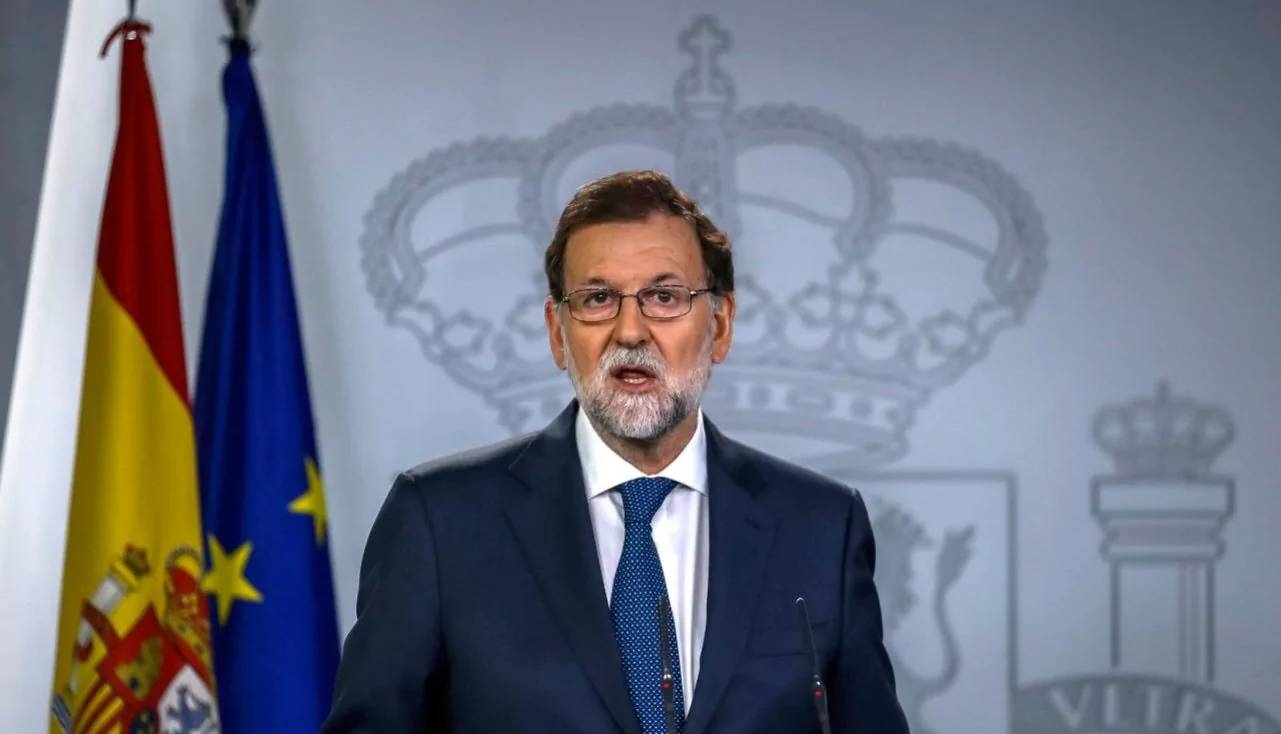Spain PM loses no-confidence vote
June 1, 2018 | Expert Insights

Spanish Prime Minister Mariano Rajoy has lost a no-confidence vote called by Socialist leader Pedro Sánchez. This is the first time a head of government has been ousted since 1977. Rajoy had previously survived a no-confidence vote in 2017.
Background
The modern state of Spain was formed in 1492 when the Christian Kingdoms of Castile and Aragon conquered the Emirate of Granada, ending nearly 800 years of Muslim rule. The Spanish empire prospered through to the 17th century, with Spain as the predominant European power, and a hub for trade. The Spanish Empire began to decline in the 18th Century with the rise of the British Empire. In the early 1800s, Spain was occupied by Napoleon. Over the next hundred years, Spanish colonies in South America began to declare their independence, and Spain lost a war against the United States in 1898. A bitter civil war from 1936-1939 resulted in a 36-year dictatorship and military rule. Democracy was restored in Spain in 1975, with the death of military dictator General Francisco Franco.
Spain saw rapid economic modernisation, particularly after joining the EU in 1986. Today, Spain has a population of approximately 46.7 million. Christianity (Roman Catholic) is the predominant religion (67.8%), and Castilian Spanish is the official language. It is the Eurozone’s fourth largest economy and its growth as remained above the EU average for the past three years. Literacy is 98.3%; however, unemployment is high (approximately 44.9% in 2016). King Felipe VI is the current head of state. He succeeded to the throne in June 2014.
Last year, the country saw widespread protests after Spain blocked the region of Catalonia’s bid for independence. The regional Parliament voted to declare independence and Madrid refused to acknowledge the decision. Spanish Prime Minister Mariano Rajoy announced the dissolution of the regional Catalonian Parliament and removed Carles, the Catalan leader. Puigdemont is currently in self-imposed exile in Germany. The current leader Quim Torra is a hard-line nationalist who has continued to call for an independent Catalonia.
Analysis
Mariano Rajoy was first elected as Prime Minister in 2011. On June 1st, he faced a vote of no confidence and was ousted from the position. A total of 180 of the chamber’s 350 lawmakers supported the no confidence motion. 169 voted against the motion and one abstained.
Rajoy has been criticized for failing to take responsibility for his party’s (People’s Party or PP) numerous scandals. Last week, a verdict found a former PP treasurer and other officials guilty for benefiting from "an authentic and efficient system of institutional corruption". The treasurer was given a 33-year jail sentence.
The motion was brought forward by the leader of the Spanish Socialist Workers' Party (PSOE) Pedro Sánchez. According to the Spanish constitution, Sanchez will now form a government despite having only 84 of the 350 seats, less than a quarter. Sanchez’s motion was backed by anti-establishment group Podemos and Catalan separatist groups.
Sanchez had called the no confidence vote an act of “democratic hygiene.” Rajoy criticised him for being an opportunist. “Everybody knows that Pedro Sánchez is never going to win elections, and this is the reason for his motion,” he said.
Some observers have noted that this could result in a crisis, in a broader context where political instability in Italy has already caused concern amongst investors. Italy was recently plunged into a constitutional crisis as a result of a stand-off between President Sergio Mattarella and its populist leaders. The coalition of populist leaders have promised to increase spending, challenge European Union fiscal rules and crack down on immigration. Moody’s Investors Service have noted that the coalition’s proposals would lead to “a weaker, not a stronger, fiscal position,” pointing to “potentially costly tax and spending measures, without any clear proposals on how to fund those.”
However, others have observed that the situation in Spain cannot be compared to Italy. Sanchez is a centre-left and pro-European politician who has promised to stick to the 2018 budget put forward by Rajoy. He has said that there will be no drastic or instant policy shifts. However, he has promised to reform some areas such as salaries, pensions, and gender equality, as well as re-establish dialogue with the pro-independence movement in Catalonia.
Theoretically, Sanchez could remain in power until the next elections in 2020, however this is unlikely as he only has 84 seats. Furthermore, the centre-right Ciudadanos Party, which is currently leading the opinion polls, may push to pre-pone the general elections rather than back Sanchez.
“Sánchez will have a hard time implementing policy initiatives given that the PSOE has only 84 MPs in the 350-seat chamber,” Antonio Barroso, analyst at the political risk advisory firm Teneo Intelligence said. “The new administration could push for piecemeal labour market and fiscal measures. But the room for big economic policy shifts will be very limited, and early elections within 12 months are the most likely outcome.”
Assessment
Our assessment is that the ouster of Prime Minister Rajoy could cause a political crisis in the country, particularly due to Sánchez’s limited support. However, it is unlikely to result in the same economic and financial crash that was inspired by Italy’s political turmoil. Spain has traditionally been pro-European and the dominant players in Spanish politics are largely centre-right or centre left. We believe that Catalonia will be a major issue for the next Prime Minister to tackle.








Comments